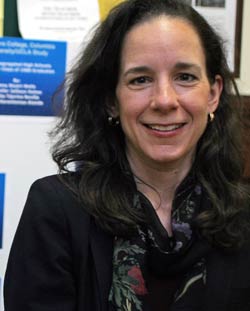Everywhere and Nowhere
One of the fastest growing areas in the field of education these days is education policy, according to Amy Stuart Wells, Professor of Sociology and Education and the new Coordinator of Policy Studies for the College with the TC Office of Policy and Research. But there's no consensus on how policy programs should be organized.
"I think schools of education across the country are struggling with how to institutionalize education policy programs, and most of them have taken the route of centralizing them into one area," she says. "What makes TC distinct is that we have people who are experts in these different areas of education who also do really important policy related work." Wells adds that, in the last 10 years, some of the top people in education policy have been hired at the College. These experts now teach in six policy-related programs located in four different departments of the College. The programs are early childhood education, economics and education, education leadership, international education development, politics and education, and sociology and education.
Wells believes TC's decentralized policy studies model is best, she says, because each area of education looks at policy through a different lens. "I always say education policy is everywhere and it's nowhere. Meaning, it's everywhere in terms of different issues that we study in education, but it's never in one place within a school of education." Most important when going out in the world to do education policy, she says, is not that your diploma says you have a degree in education policy, but that you have a strong grounding in your field, and that you studied with a top policy expert-someone like Lynn Kagan, Jeanne Brooks-Gunn, Henry Levin, Jeffrey Henig or any of the other leaders in their fields who teach at TC.
How, then, can students navigate the policy labyrinth of Teachers College, and what are the options open to those who want to add a policy focus to their studies? Up until now, it was not always easy to know where to find the policy courses available across the different departments and programs. Now, that information is centralized at www.tc.edu/academic/edpolicy. The Web site organizes the wide array of TC policy courses into four categories-the craft of policy making and analysis, the context and history of educational policy, content-driven policy, and research methodology-that cut across the different programs to help students find classes that interest them most.
Students have the option of becoming involved in policy studies at three different levels: minimal policy study, a college-wide policy concentration or enrollment in one of the policy-related programs. At the minimum, students can choose to enroll in individual policy courses that are open to the whole community. A college-wide concentration allows students from any program at the College to take a specified sequence of courses within the Sociology and Education Program and earn a "Policy Concentration" certificate of completion. Students who want educational policy to be more central to their graduate studies can apply to one of the six policy-related degree programs that will provide a unique focus on policy studies.
Published Friday, Feb. 25, 2005
